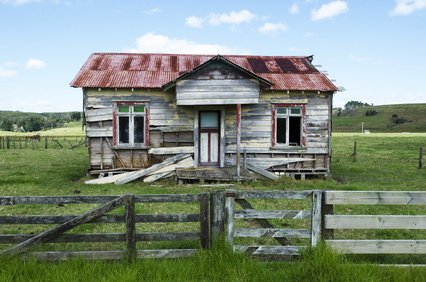 If you were starring on your own fixer-upper TV show, you wouldn’t have to worry about getting a rehab loan for your next fix-and-flip. But, of course, most rehabbers are not on TV and they know it’s not as easy as seen on TV. So where do we go for rehab loans? Certainly comedian Bob Hope got it right when he said, “A bank is a place that will lend you money if you can prove that you don’t need it.”
If you were starring on your own fixer-upper TV show, you wouldn’t have to worry about getting a rehab loan for your next fix-and-flip. But, of course, most rehabbers are not on TV and they know it’s not as easy as seen on TV. So where do we go for rehab loans? Certainly comedian Bob Hope got it right when he said, “A bank is a place that will lend you money if you can prove that you don’t need it.”
Well, many real estate investors, especially those doing buy-and-hold deals, do still go to banks and some of them are able to get conventional mortgages. This can be more difficult for the rehabbers who are flipping more deals more quickly. The 20% minimum down payment can go up to 25% or even 30% for investment properties. That can be challenging when you have several deals in process and you’re trying to manage your finances so you can fund the rehab too! An even greater difficulty is faced when the bank will not approve a mortgage on a house which requires too much repair, but this is, of course, an ideal house for a rehabber. Most rehabbers are also looking for much shorter loan periods than you would typically get with a mortgage.
If the banks won’t help, rehabbers have some other options—perhaps a home equity line of credit (HELOC) against their own residence, in order to fund the acquisition and rehab of a property. But the truth is: do you really want to use your own money to do deal? The best kind of investing is “OPM”—other people’s money!
Another option is private equity, such as relatives or friends who might be willing to loan you money short-term at a worthwhile interest rate. However, this is risky too because no one wants to have to face their family or friends if you can’t pay the money back right away.
There is another option, and this is one that many rehabbers are using because it solves the challenges posed by banks, borrowing against your own assets, or borrowing from friends and family.
“Hard money” is financing obtained from a private business or lender for the purpose of investing in real estate. They are most often secured with the subject property as collateral making the qualification for the loan quite different than a mortgage. The term “hard money” just means the loan is backed by a “hard” asset – the house you’re developing. It’s not meant to imply that the money itself is hard to get. Hard money loans can often be processed much faster than a mortgage. Hard money lenders also understand your business model much better than other lenders.
Hard money lenders are one of the most effective ways for investors to borrow rehab loans because hard money lenders are professionals who are “in the business” (even more than banks!) and can help you figure out how much you need for your rehab deal and how to spend it effectively.
If your biggest problem is not having enough money to close your next real estate deal, there are other options than banks for you to get a rehab loan. Keep your deal flow steady and manage your projects well and you will be able to secure rehab loans.
